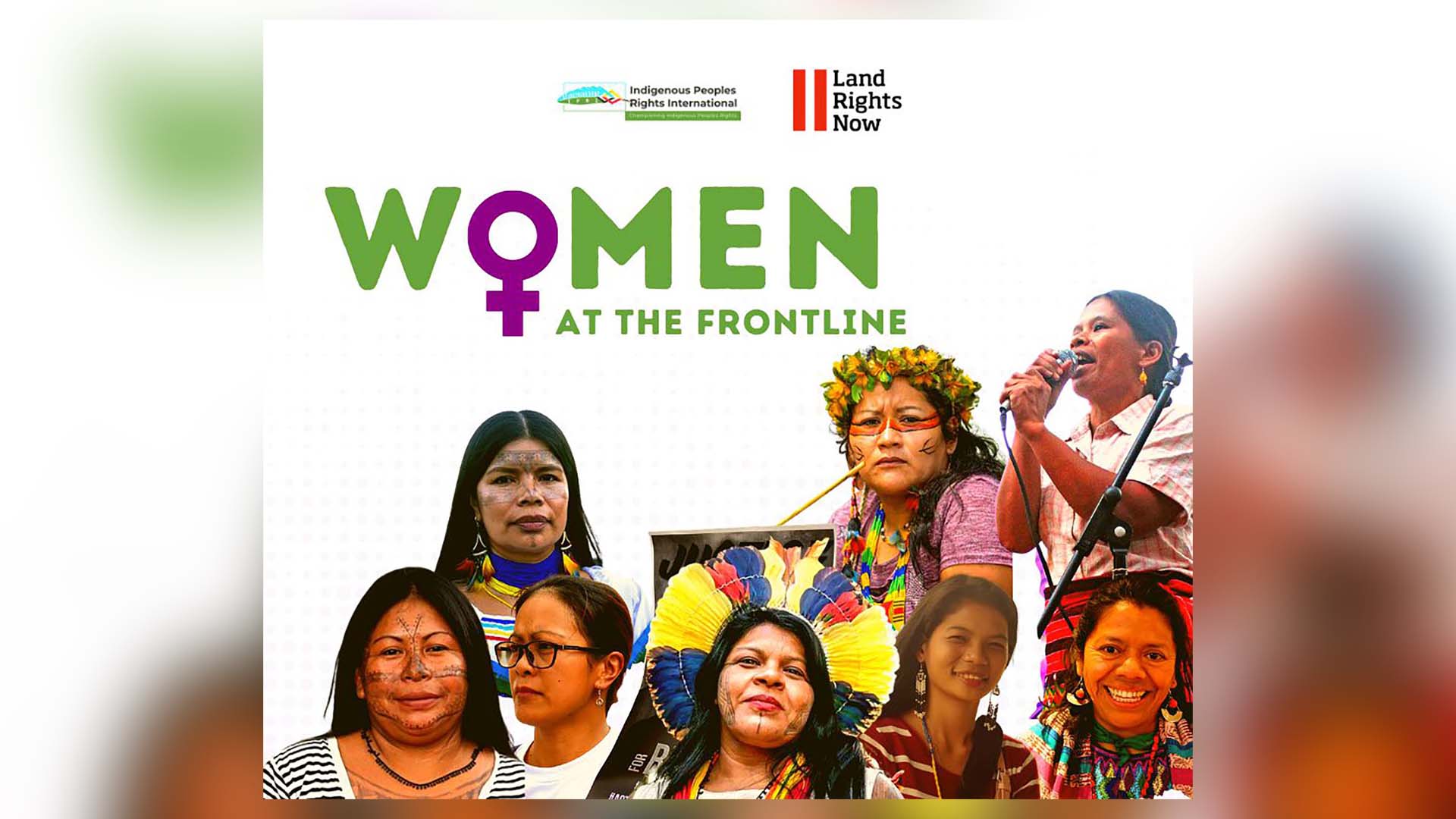“Land is life. Indigenous women will cease to exist if their lands and territories are destroyed. We were able to protect and nurture our lands, territories and resources for many generations through self-determination, deciding on what is good for many without sacrificing the land, culture and future of our children.”
Indigenous women play an indispensable role in defending forests, rivers, and lands―they are essential to sustaining life and safeguarding the planet. As the world reels from the impacts of the COVID-19 pandemic, the traditional knowledge and values of indigenous communities and the interconnectedness of indigenous women and environment are key to healing and building back our world for the better.
Despite indigenous women’s invaluable contributions in the preservation of life, culture, and environment, they are subjected to various forms of violence across the globe. At a time when it is more urgent than ever to listen to indigenous women, they are put in peril. From physical attacks, smear campaigns, land grabbing, to sexual violence, and criminalization, indigenous women are preyed upon at an alarming rate.
To be an indigenous woman at the frontline of struggle requires courage. It demands unwavering dedication to care for the children and defend their communities from any form of transgressions. Indigenous women also need to assert their leading role in the fight for land rights and self-determination from a fascist and capitalist system that is entrenched with patriarchy and misogyny. As primary caregivers in indigenous communities, indigenous women bear multiple burdens of providing to their families, sustaining cultural practices, while attempting to break down barriers of sexism and discrimination.
And yet they endure. They remain steadfast to their commitment to defend their lands, rights, and dignity. They continue―against all odds―to speak out and stand up for themselves and their communities.
On the International Day of Women, stand for land, life, and dignity. Stand with Indigenous Women Human Rights Defenders!
To further support and amplify the contributions and voices of indigenous women in the frontline, we call for:
- Establish measures to protect individual indigenous women leaders at risk and, at the same time, provide mechanisms and processes to strengthen their collective protection with the knowledge and the guidance of their communities and women groups.
- Build and strengthen collaboration between human rights organizations, indigenous organizations, and civil society organizations including service providers at all levels, to generate the needed support on the ground for the protection of indigenous women and their communities as they assert their rights and defend their lands and resources.
- Generate legal and sanctuary support, as well as support for the mental and physical wellbeing of indigenous women at risk and support needed by their families.
- Support Indigenous Women Human Rights Defenders’ own methods for self-protection with their own social networks and support systems. It is necessary to support their own processes, and to recognize theirs visions, their own concepts of feminism, worldview, and leadership.
- Denounce the perpetrators of violence including structural violence to women rooted in colonial and patriarchal systems. Likewise, demand accountability mechanisms including access to justice by indigenous women and their communities.
- Demand the legal recognition and security of indigenous peoples’ lands, territories, and resources, and ensure the protection of indigenous women from violence, abuse, and discrimination.
Note: To honor some of the most courageous indigenous women of today, IPRI, in partnership with Land Rights Now, ran a series of short features on eight indigenous women from the Philippines, Ecuador, Guatemala, and Brazil. Read them below:
- Sarah Dekdeken: Continuing fight amid attacks
- Rose Hayahay: Defending indigenous rights through education
- Beatrice Belen: Fighting with unwavering courage
- Lolita Chavez Ixcaquic: Continuing Fight For K’iche From A Distance
- Sonia Guajajara: Bringing the indigenous struggle to a broader arena
- Eunice Kerexu: Fighting for indigenous education and territory
- Patricia Gualinga: Defending territories amid threats
- Alessandra Korap: Leading the way for the Munduruku tribe


%2020.49.20.png)
